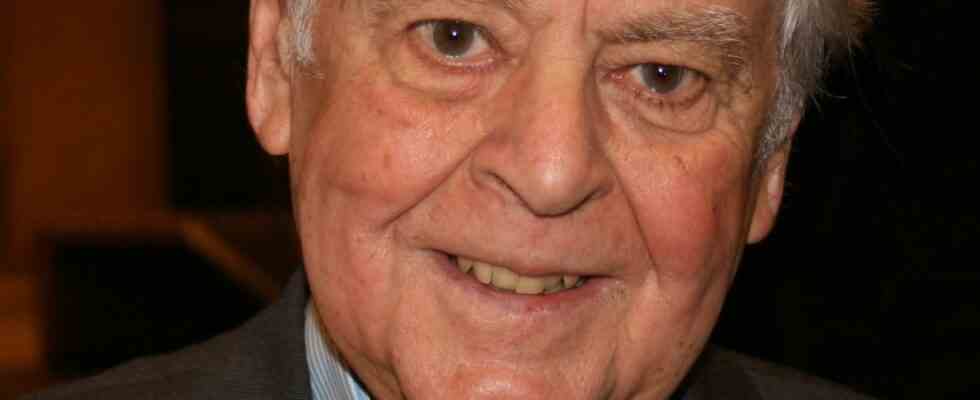Shortly after the important Goethe researcher Ernst Grumach died in London in October 1967, his will was opened in Berlin. In it, the Holocaust survivor stipulated that Hellmut Flashar should continue the definitive German edition of Aristotle that he had started. At that time, Flashar, who was born in Hamburg in 1929, was already a fixture in classics. The student of Wolfgang Schadewaldt, who teaches in Tübingen and, along with Grumach, the defining figure in his scholarly life, wrote his dissertation on Plato’s “Ion” and shortly thereafter translated the dialogue on the relationship between philosophy and poetry. Flashar added Goethe’s text “Plato as fellow companion of a Christian revelation” from 1796 to the small edition, and in retrospect the combination can be understood as a pointer. Because Flashar was as passionate a classical scholar as he was a theatergoer. If you want to convince yourself of this, read his standard work “The Staging of Antiquity” (2009).
Four years after his habilitation in 1961, Flashar was appointed to the newly founded Bochum Ruhr University. From 1982 until his retirement in 1997 he taught in Munich. Flashar was a prolific scientist. In addition to publishing and collaborating on the Aristotle Edition, which he handed over to Christof Rapp, who also teaches in Munich, in 2010, he was responsible for the “Ancient Philosophy” department of what is probably the most important international standard work for the history of philosophy, the so-called “Ueberweg”. The presentation, which was developed with colleagues and comprises a total of eight volumes, sets standards to this day.
His monographs on Sophocles from 2000 and the physician Hippocrates from 2016 prove that Flashar can tell stories and write for experts and interested parties alike Template. Above all, this had to do with the precise knowledge of the subject, the reliable handling of the sources and the appreciation that he had for the long-neglected scientific writings.
His Sophocles monograph was a plea for the modernity of antiquity
At first glance, all of this looks like a sovereign work that has also received a lot of recognition and praise, but ultimately remained within its own area. In fact, Flashar has worked beyond his field and democratized it, ultimately freed from many a patina. In 1969 he presented an interpretation of Pericles’ speech about the fallen of Athens, handed down by Thucydides, which, in its displayed sobriety, opposed the nationalistic-chauvinistic pathos that was still common in this country. And Flashar’s “Sophocles” was not only the first German-language comprehensive account of the tragic poet since Karl Reinhardt’s attempt in 1933, but also a decisive plea for the modernity of antiquity.
Flashar had prepared such positioning for many years. Because of his conflicting teachers and his experiences in the Second World War, it was natural for him to analyze the history of the subject and, together with his colleagues, to clarify how classical philology has developed under the changing regimes since the mid-19th century and under the various fashions in methodology and had changed. Here, too, he opened up spaces for an open, critical and constructive reception of antiquities, as recently published by the Basel classical philologist Stefan Rebenich in Munich’s Beck-Verlag.
Hellmut Flashar, one of the greats of classical philology and one of the key figures in his field, died in Bochum on August 17, a few months before his 93rd birthday.

